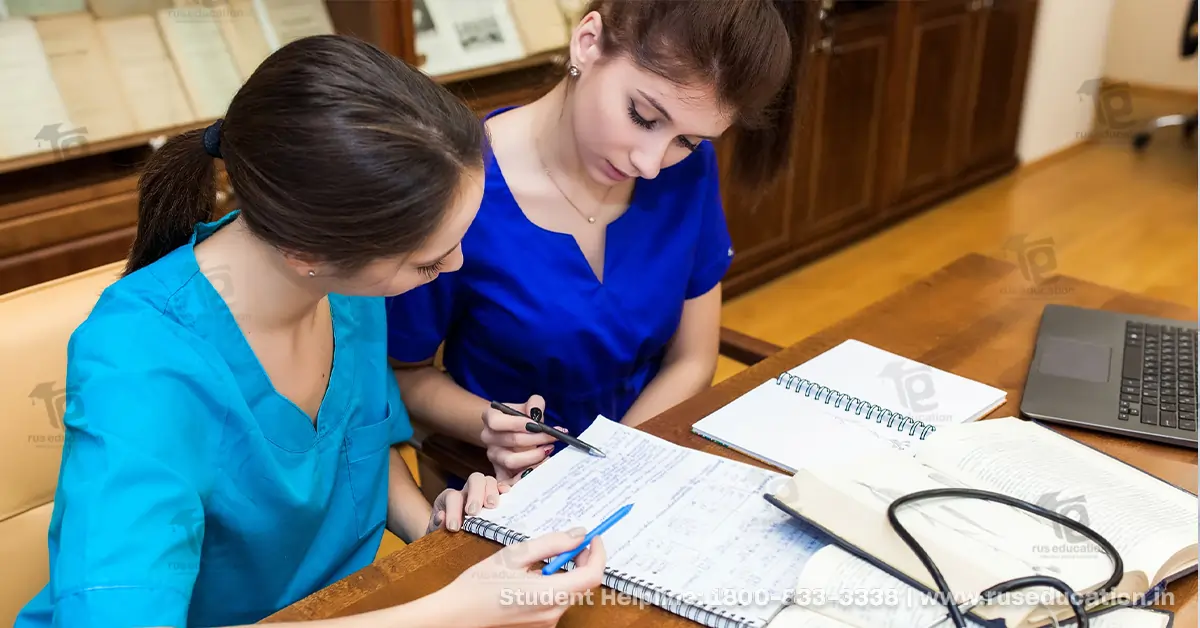Every year, thousands of Indian students want to become doctors; however, with only a few government seats and high tuition at private colleges, studying MBBS in India is no longer an option. That is why increasing numbers of students are seeking cheap and good medical education outside their home country. Consequently, Russia has come out as the most favored destination among Indian students.
Russia has not only the best medical education, but it is also affordable, internationally recognized, and safe to learn. We shall examine the Top 10 Reasons why you should study MBBS in Russia as an Indian student, and why it might be the perfect fit for your medical career.
Top 10 Benefits of Studying MBBS in Russia
Here are the top 10 major benefits of studying MBBS in Russia for Indian Students:
Affordable Tuition Fees and Cost of Living
Cost is the greatest benefit of studying MBBS in Russia. MBBS tuition in Russian universities costs 2.8 to 5.6 lakh per year (3,500$ to 7,000$). Compared to private medical colleges in India, which can charge more than ₹15 lakh to ₹25 lakh annually, Russia is far more economical.
The living expenses are too cheap. The average expenditure incurred by students is approximately 8,000 to 12,000 INR/month (100$ – 150$) covering accommodation, food, and transport. This low cost of living, combined with reasonable MBBS Russia fees for Indian students, makes Russia one of the most budget-friendly destinations to pursue a medical degree.
Globally Recognized Medical Degree
Russian MBBS is accepted by leading international authorities, including:
- NMC (National Medical Commission – India)
- WHO (World Health Organization)
- WDOMS (World Directory of Medical Schools)
- ECFMG (Educational Commission for Foreign Medical Graduates – USA)
This implies that once the MBBS is done in Russia, Indian students may go back to India and take the FMGE/NExT or continue their education and professional life in such countries as the USA, UK, Canada, or Australia.
No Donation or Capitation Fee
Medical colleges in India usually require excessive donations or a capitation fee besides tuition fees. However, to study MBBS in Russia, there is no capitation fee or donation fee. The official university tuition fee is what all students have to pay, and the process of admission becomes straightforward, cheaper, and free of stress.
High-Quality Education with English-Medium Programs
Russian medical universities are also associated with high standards of education. The MBBS course not only concentrates on theory but also on practice with clinical exposure. There are a lot of universities that provide English-medium MBBS programs, which enable Indian students to study without facing a language barrier.
Moreover, hospital rotations and internships are also provided to the students with an opportunity to study some simple Russian language and communicate with the local patients, which increases their learning experience.
Advanced Infrastructure and Modern Facilities
Russian universities provide several benefits of studying MBBS in Russia, so that students have access to the latest infrastructural facilities, such as:
- Modern laboratories with advanced equipment
- Simulation centers for practical training
- Digital classrooms with smart learning tools
- Fully equipped hospital for clinical exposure
This is to make sure that the students have the practical experience with the newest medical technologies that will enable them to meet the global healthcare requirements.
FMGE/NExT Coaching and Preparation
Indian students must pass the FMGE (Foreign Medical Graduate Examination) or the recently established NExT (National Exit Test) to practice medicine in India. FMGE/NExT coaching is widely available as an addition to the MBBS program in many Russian universities. This assists Indian learners in equipping themselves to pass licensing exams when they learn overseas, raising their chances of success when they return home. That’ why aspirants choose to study MBBS in Russia.
Cultural Diversity and Safe Environment
Russia accepts thousands of foreign students annually and forms a multicultural environment. Indian students have a chance to communicate with students of such countries as China, Nepal, Bangladesh, Pakistan, and European countries, which expands their vision and makes acquaintances worldwide.
The majority of universities also help to provide a safe and comfortable living environment by offering:
- Separate hostel facilities for boys and girls
- 24/7 security with CCTV surveillance
- Hygienic kitchens with Indian mess facilities (vegetarian and non-vegetarian options)
- Internet, laundry, and recreational facilities
This enables Indian students to comfortably adapt and concentrate on their studies.
Wide Range of NMC-Approved Universities
There are over 25+ NMC-approved universities in medicine in Russia. Here are some top medical universities in Russia among Indian students:
- Kalmyk State University
- Orenburg State Medical University
- Mari State University
- Perm State Medical University
- Tver State Medical University
- Tula State University
With the multiple choices, students can pick a university according to their financial capacity, choice of location, and their future career.
Opportunities for International Exposure
Studying MBBS in Russia gives Indian students international exposure. They get opportunities to:
- Attend global medical conferences
- Participate in exchange programs
- Join international research projects
This type of exposure will assist students to become confident, improve their knowledge, and equip themselves to work in medicine globally.
Excellent Career Prospects in India and Abroad
Students can take on a variety of career options after completing MBBS in Russia:
- Return to India, clear FMGE/NExT, and practice medicine.
- Pursue postgraduate medical education in India or abroad.
- Apply for medical licensing exams in the USA (USMLE), UK (PLAB), Canada, and Australia.
MBBS in Russia has a wide range of careers, so the graduates are in demand globally.
On the Whole!
After exploring all of the benefits, we came to the conclusion that MBBS in Russia offers the best mix of low cost, quality education, and international acceptance to the Indian student. From low tuition fees (₹2.8 lakh to 5.6 lakh/year or $3,500-7,000) to modern infrastructure, exposure to international markets, and a secure environment, Russia offers all that a medical aspirant requires to establish a successful career.
Further, if you are a student planning to study MBBS in Russia, contact Rus Education. We can help you in every process, from admission to graduation.
FAQs: Benefits of Studying MBBS in Russia for Indian Students
Q1. Is MBBS in Russia valid in India?
Yes, MBBS from NMC-approved Russian universities is recognised in India. To practice medicine, graduates have to pass FMGE/NExT.
Q2. What is the duration of MBBS in Russia?
Answer – The duration of MBBS in Russia is 6 years (including 1 year of internship).
Q3. Is NEET required for MBBS in Russia?
Answer – Yes, Indian students must qualify for NEET to get admission in Russian universities.
Q4. Do Russian universities provide Indian food?
Answer – Yes, most universities provide Indian mess facilities with vegetarian and non-vegetarian food options.





1 Comment
Comments are closed.